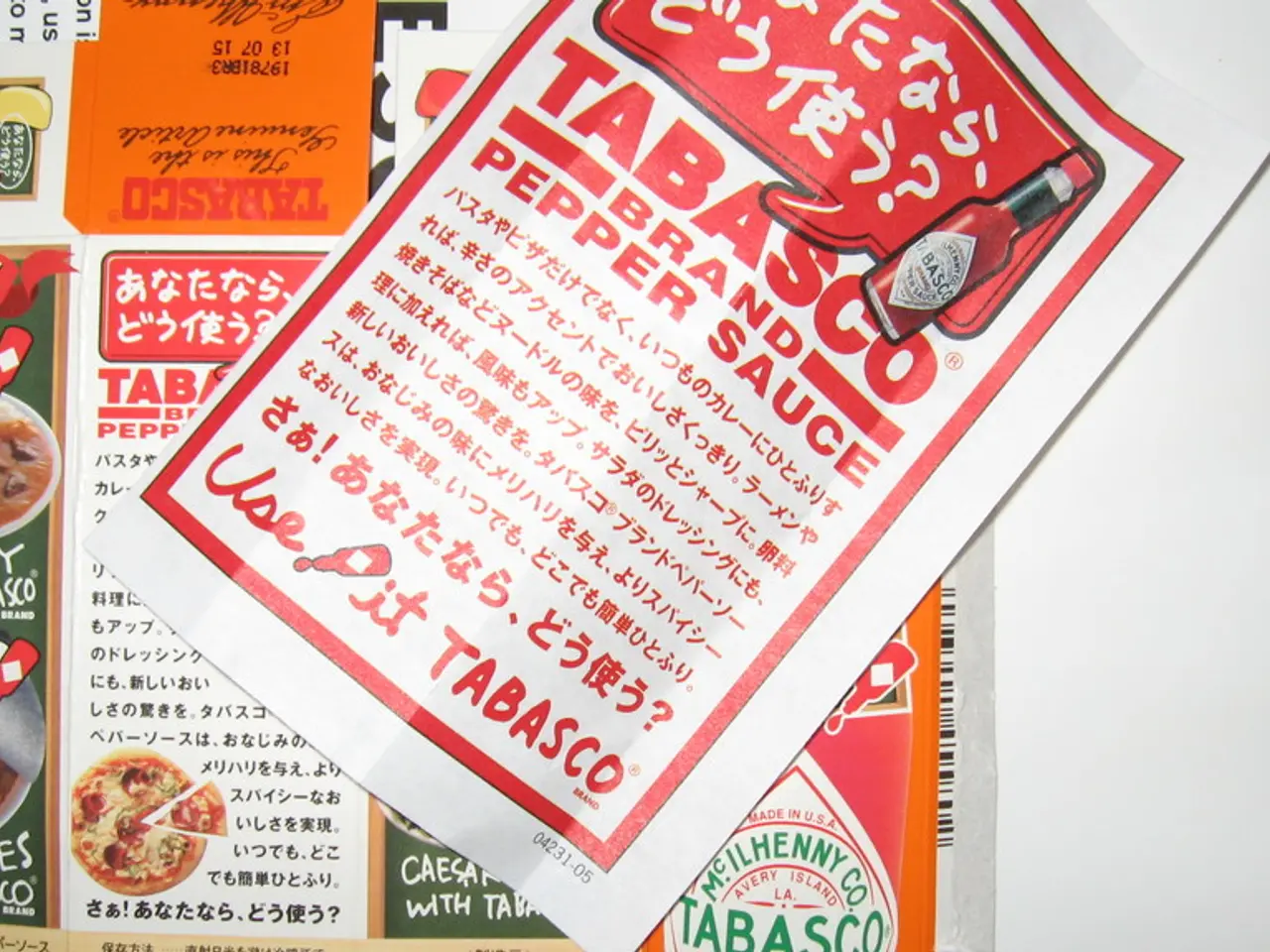Benefits of Coconut Aminos for Health and Recipes for Utilization
In the realm of cooking, coconut aminos has emerged as a popular substitute for soy sauce, offering a unique set of advantages for health-conscious individuals. This savory sauce, made from the fermentation of coconut palm sap and sea salt, is gaining traction as a versatile seasoning option.
While the amount of amino acids in coconut aminos varies between brands, it is worth noting that these essential compounds play a crucial role in muscle recovery, energy production, and overall health. However, the benefits attributed to coconut aminos are primarily associated with amino acids generally rather than the sauce itself.
One of the key selling points of coconut aminos is its lower sodium content compared to soy sauce. This makes it a potentially healthier alternative for those concerned about their sodium intake, which should ideally be less than 2,300 milligrams (mg) per day, according to health recommendations.
Coconut aminos might indirectly support stable blood sugar levels and reduced inflammation when used as part of a whole, unprocessed food diet. This, in turn, can help increase energy levels and promote better health. Its use as a flavoring agent without added processed ingredients or high sodium content can also aid in reducing inflammation and supporting dietary goals.
Despite its lower sodium content, coconut aminos is still a highly salted condiment. Therefore, it's essential to consume it in moderation and consider other low-sodium alternatives to further reduce salt intake in the diet.
It's important to clarify that there is no direct clinical evidence specifically proving unique health benefits of coconut aminos itself. Its primary recognized advantage is as a lower-sodium, soy-free seasoning alternative to soy sauce.
Coconut aminos does not contain soy, wheat, or gluten, making it a suitable alternative for people with food allergies or intolerances. Other alternatives to soy sauce include fish sauce, Worcestershire sauce, and liquid aminos, which are made by soaking soybeans in an acidic solution to extract amino acids.
When using coconut aminos as a direct replacement for soy sauce in recipes, it's important to note that dishes may not taste exactly the same due to its sweeter and less intense flavor. However, its taste is similar to light soy sauce but is slightly sweeter and does not taste like coconut.
In conclusion, while coconut aminos offers a lower-sodium, allergy-friendly alternative to soy sauce, it's essential to approach it as part of a balanced diet and consume it in moderation. Its primary benefits lie in its role as a flavor enhancer rather than a nutrient-dense food.
- For those on a health-and-wellness focused lifestyle, coconut aminos, a sauce made from coconut palm sap and sea salt, presents a unique opportunity as a popular substitute for soy sauce that offers potential benefits.
- One valuable aspect of coconut aminos is its lower sodium content compared to soy sauce, making it an attractive option for individuals monitoring their sodium intake, which should ideally be less than 2,300 milligrams (mg) per day.
- Even though the benefits of coconut aminos are predominantly attributed to the presence of essential amino acids rather than the sauce itself, it can indirectly support stable blood sugar levels and reduced inflammation when used as part of a whole, unprocessed food diet.
- Despite being a lower-sodium alternative, coconut aminos remains a salted condiment, necessitating moderation in consumption and consideration of other low-sodium alternatives to maintain a balanced diet.
- As coconut aminos does not contain soy, wheat, or gluten, it is a suitable option for people with food allergies or intolerances looking to diversify their foodandfoodbenefits choices beyond traditional soy sauce.
- In cooking and food-and-drink preparation, it's essential to recognize that using coconut aminos as a direct replacement for soy sauce may change the flavor of dishes slightly, tasting sweeter and less intense compared to traditional soy sauce.




